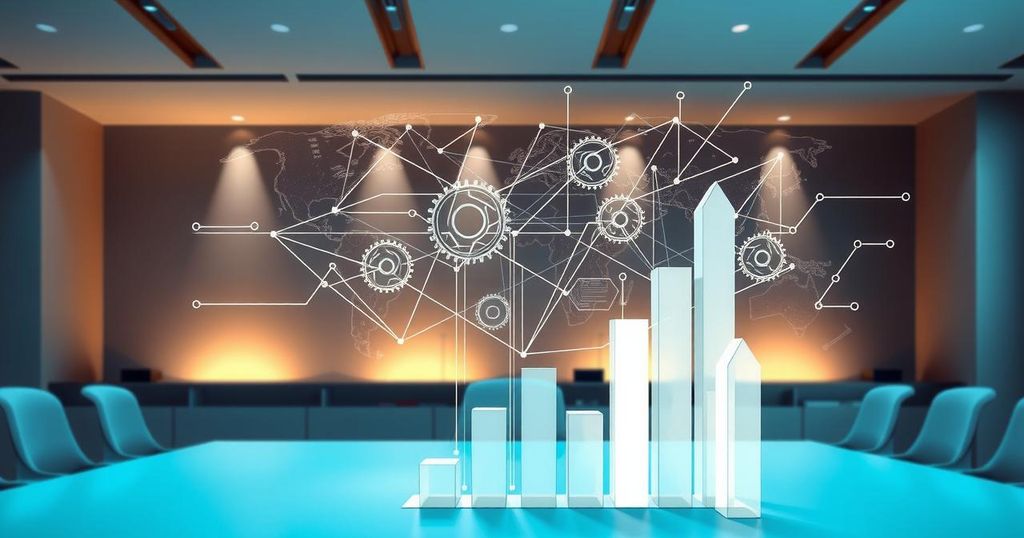China’s Former Ambassador Engages with AI Expert at Global Summit

At a global AI summit in Paris, former Chinese diplomat Fu Ying openly challenged AI expert Professor Yoshua Bengio on a major AI safety report, sparking discussions about differing approaches to AI regulation. Key topics included the need for transparency in AI development and the impact of global political tensions on cooperation in safety initiatives. The event underscored the speed of AI advancements, particularly from China, and the associated risks involved.
During a panel discussion in Paris, Fu Ying, the former Chinese ambassador to the UK, engaged in a contentious exchange with Professor Yoshua Bengio, known as the ‘AI Godfather’, regarding a significant international AI safety report. As part of a two-day global AI summit, Ying humorously critiqued the report’s length and pointedly noted China’s decision to name its own AI safety institution differently to emphasize collaborative efforts.
The AI Action Summit brought together leaders from 80 countries, including notable American tech figures, to address how AI technology affects governance, society, and the environment. A critical topic is the regulation of AI amidst a rapidly changing landscape of innovation, particularly following China’s introduction of a powerful AI model that poses a challenge to U.S. technological supremacy.
Despite their differences, Fu Ying lamented that rising tensions between the U.S. and China hinder cooperation in AI safety initiatives. She highlighted China’s accelerated innovation in AI, which has intensified since the release of its development plan in 2017, ultimately leading to both rapid advancement and increased risks.
Standing by her belief in the importance of open-source AI tools for promoting safety, Ying asserted that such an approach allows for collective problem-solving. Conversely, Professor Bengio raised concerns that open-source technologies could also leave vulnerabilities for misuse by malicious actors. In addressing the comparative transparency of Chinese AI developments versus U.S. counterparts, he acknowledged it is often easier to identify issues in openly developed models.
The summit is set to include discussions featuring world leaders regarding AI’s future impact on employment and public welfare. Additionally, it marks the unveiling of a $400 million partnership focused on supporting AI projects in the public interest, including healthcare. Experts believe that harnessing AI technologies will greatly enhance efficiency in various sectors, further prompting the need for urgent attention on adoption strategies.
Finally, thoughts were shared about AI’s potential to radically alter job dynamics, with industry leaders expressing concerns that traditional employment structures may not endure for future generations, underscoring the importance of timely engagement with emerging technologies.
As artificial intelligence (AI) continues to evolve rapidly, international discussions about its safety and governance are critical. The Paris summit gathered key global leaders, tech executives, and academics to evaluate AI’s effects on society and the environment amid ongoing geopolitical tensions. China’s growing influence in AI development presents both competitive challenges and collaboration challenges for Western nations, leading to a complex landscape concerning regulation and innovation.
The tensions highlighted during the summit reveal the urgent need for international discourse on AI regulation and collaboration amidst competitive pressures. The insights shared reflect the implications of AI development on global relations and the necessity for transparency and cooperation in addressing potential risks. Continued dialogue will be essential for ensuring that AI serves the collective interests of all nations, particularly in realms like public health and employment.
Original Source: www.bbc.com







